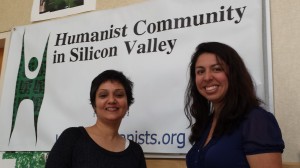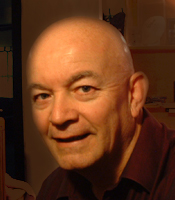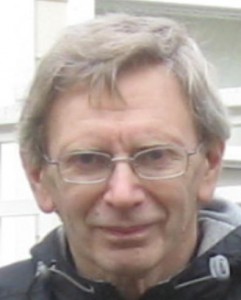The Bay Area linkAges TimeBank
Vandana Pant and Christina Araiza
April 27, 2014
 The Innovation Center of the Palo Alto Medical Foundation (PAMF) offers a community-based program called linkAges to address the social and psychological factors that impact health and support aging in community. One component of the linkAges system is the Bay Area linkAges TimeBank, a free community-based service exchange network that launched in 2013. linkAges TimeBank members, including older adults and family caregivers, can use the TimeBank to meet daily needs, pursue personal interests and get to know people in their communities. Vandana Pant and Christina Araiza of PAMF will present.
The Innovation Center of the Palo Alto Medical Foundation (PAMF) offers a community-based program called linkAges to address the social and psychological factors that impact health and support aging in community. One component of the linkAges system is the Bay Area linkAges TimeBank, a free community-based service exchange network that launched in 2013. linkAges TimeBank members, including older adults and family caregivers, can use the TimeBank to meet daily needs, pursue personal interests and get to know people in their communities. Vandana Pant and Christina Araiza of PAMF will present.
Click here to see Vandana’s and Christina’s presentation
Click here to see a step by step registration guide
And here is the linkages timebank website https://timebank.linkages.org/
Humanist Community Forum (2014-04-27): The Bay Area linkAges TimeBank from Humanist Community-SiliconValley on Vimeo.

 In September 2011, the Occupy Wall Street encampment captured the public’s attention. Within months however, it faded from the mainstream media, and many think the movement has died. In this presentation, we will discover some of the ways the Occupy movement continues to bring change to our communities, including Strike Debt and Occupy Sandy . In this presentation, Derek Tennant will facilitate an “Occupy Experience”, based in part on his work as the Facilitator for several General Assemblies held by Occupy San Jose in 2011 and 2012.
In September 2011, the Occupy Wall Street encampment captured the public’s attention. Within months however, it faded from the mainstream media, and many think the movement has died. In this presentation, we will discover some of the ways the Occupy movement continues to bring change to our communities, including Strike Debt and Occupy Sandy . In this presentation, Derek Tennant will facilitate an “Occupy Experience”, based in part on his work as the Facilitator for several General Assemblies held by Occupy San Jose in 2011 and 2012. This is a follow-up discussion of Free Will, which was the topic of Daniel B. Miller’s Dec. 8, 2013 Forum. Michael Abramson, a physicist specializing in numerical simulations, will offer his insights about connections between our Free Will and certain properties of a physical world. The arguments that he will be presenting may have profound implications for our approach to fundamental political and moral issues.
This is a follow-up discussion of Free Will, which was the topic of Daniel B. Miller’s Dec. 8, 2013 Forum. Michael Abramson, a physicist specializing in numerical simulations, will offer his insights about connections between our Free Will and certain properties of a physical world. The arguments that he will be presenting may have profound implications for our approach to fundamental political and moral issues.